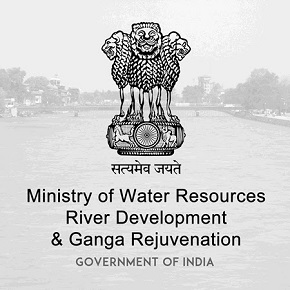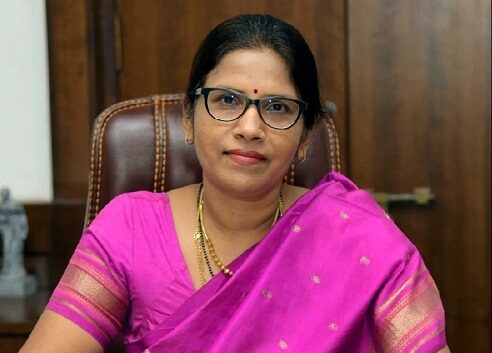Sahitya Akademi Awards 2024

Sahitya Akademi Awards 2024. The Sahitya Akademi Awards are one of the most prestigious honors in the Indian literary world. They are conferred annually by the Sahitya Akademi, India’s National Academy of Letters, to recognize excellence in literature. The awards are given in 24 languages, covering a wide range of literary forms, including poetry, fiction, drama, and essays.
In 2024, the Sahitya Akademi Awards continued their tradition of honoring the finest literary contributions. The awards celebrate the diversity of Indian languages and literary traditions, making them a significant milestone for writers in India. This article provides a detailed overview of the Sahitya Akademi Awards 2024 and the winners in various categories.
Sahitya Akademi Awards 2024
What are the Sahitya Akademi Awards?
The Sahitya Akademi Awards were first introduced in 1954 and are given annually for outstanding books of literary merit. The awards are given in 24 languages recognized by the Sahitya Akademi, including Hindi, Bengali, Tamil, Marathi, and Urdu, among others. The Sahitya Akademi recognizes works in different genres, such as poetry, prose, plays, and translations, making it a comprehensive reflection of India’s literary landscape.
The award consists of a monetary prize, a citation, and a plaque. The winners are selected by a jury of experts from the literary field, and the awards are typically presented in a ceremony organized by the Sahitya Akademi.
Sahitya Akademi Awards 2024: The Winners
The 2024 Sahitya Akademi Awards were announced for works published in the year 2023. Below is a list of the winners from various categories:
1. Hindi Language:
- Winner: Taba-e-Umri by Kashi Nath Singh
- Genre: Poetry
- Description: Kashi Nath Singh’s Taba-e-Umri explores the depths of human emotions through the poetic form, reflecting on the passage of time and the human experience.
2. Bengali Language:
- Winner: Chhaite Sita by Shirshendu Mukhopadhyay
- Genre: Fiction
- Description: In Chhaite Sita, Mukhopadhyay delves into the complexities of human relationships, capturing the essence of societal dynamics in contemporary Bengal.
3. Marathi Language:
- Winner: Jeevanchandra by Nivrutti Khandekar
- Genre: Fiction
- Description: Khandekar’s Jeevanchandra is an introspective journey into the trials and triumphs of life, exploring philosophical ideas with a nuanced approach.
4. Tamil Language:
- Winner: Kaatchi Mozhigal by S. Ramakrishnan
- Genre: Poetry
- Description: Ramakrishnan’s work is a beautiful reflection of Tamil culture, exploring language, emotion, and the connections between past and present in poetic form.
5. Urdu Language:
- Winner: Jahaan-e-Raaz by Rahat Indori
- Genre: Poetry
- Description: Renowned poet Rahat Indori’s Jahaan-e-Raaz presents an evocative blend of love, sorrow, and societal reflections, showcasing the depth of Urdu poetry.
6. Gujarati Language:
- Winner: Akhand Asha by Dhiru P. Soni
- Genre: Fiction
- Description: Akhand Asha portrays the unwavering hopes and aspirations of the common people in Gujarat, presenting a nuanced understanding of societal struggles.
7. Punjabi Language:
- Winner: Sukhmanis by Surjit Patar
- Genre: Poetry
- Description: Patar’s Sukhmanis reflects the spiritual and emotional landscape of Punjab, weaving the state’s traditional values into modern poetic expressions.
8. Kannada Language:
- Winner: Sammohika by Girish Karnad
- Genre: Drama
- Description: Karnad’s Sammohika brings forth the intricacies of human nature through theatrical dialogue, reflecting upon the evolution of contemporary society.
9. Malayalam Language:
- Winner: Sankalan by M.T. Vasudevan Nair
- Genre: Fiction
- Description: A collection of stories, Sankalan continues Nair’s tradition of capturing the delicate balance between personal struggles and collective societal transformation.
10. Telugu Language:
- Winner: Andhrula Chitram by C. Narayana Reddy
- Genre: Poetry
- Description: Andhrula Chitram captures the essence of Andhra Pradesh, highlighting the state’s historical and cultural narratives through vivid poetic imagery.
11. Odia Language:
- Winner: Aghori by Pradeep Kumar
- Genre: Fiction
- Description: Aghori is a riveting exploration of spirituality and mysticism in the modern age, delving into the complex relationship between faith and reality.
12. Assamese Language:
- Winner: Sahitya Samiksha by Homen Borgohain
- Genre: Literary Criticism
- Description: Borgohain’s work critically evaluates the state of Assamese literature, offering insights into its evolution and contemporary trends.
The Role of the Sahitya Akademi Awards
The Sahitya Akademi Awards serve as a critical platform to recognize and honor the immense literary talent present in India’s diverse linguistic landscape. The awards provide an opportunity for writers to gain recognition for their work, often leading to increased readership and influence.
Moreover, the Sahitya Akademi plays a crucial role in preserving and promoting India’s literary heritage. Through these awards, it ensures that the richness of India’s multilingual culture is celebrated on a national level, allowing readers to access the best of Indian literature in different languages.
Conclusion
The Sahitya Akademi Awards 2024 continue to highlight the excellence and diversity of India’s literary tradition. With winners across a broad spectrum of genres and languages, the awards demonstrate the vastness of literary contributions that shape the cultural and intellectual fabric of India. The recognition of such works not only honors the authors but also serves to inspire future generations of writers to contribute to the ongoing legacy of Indian literature.





